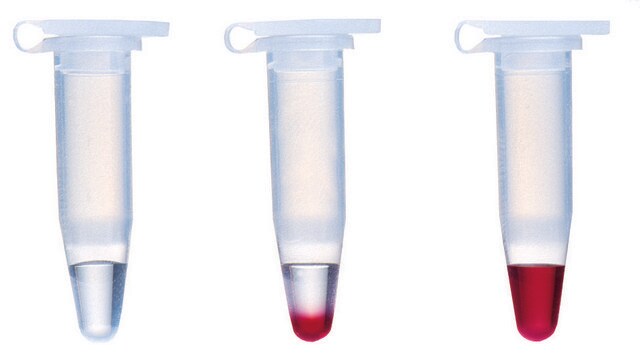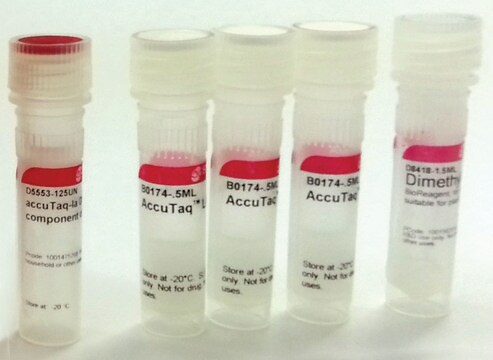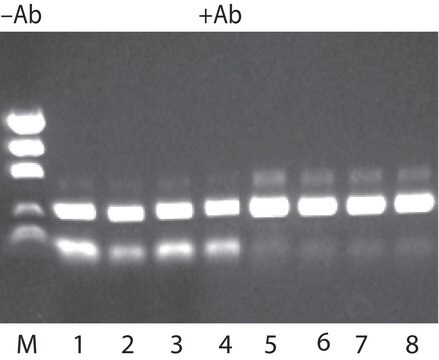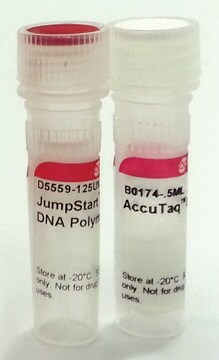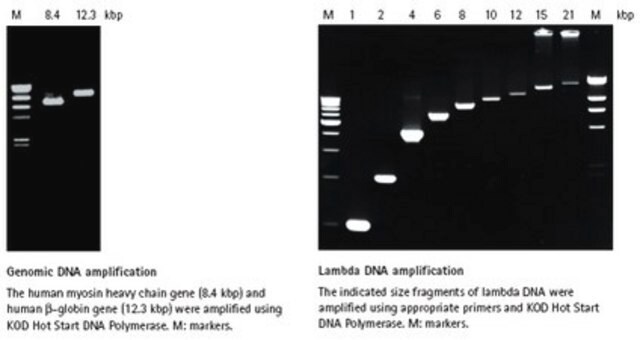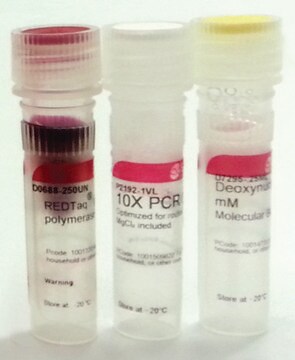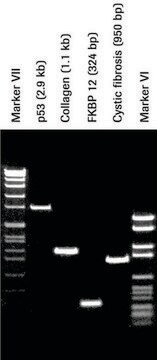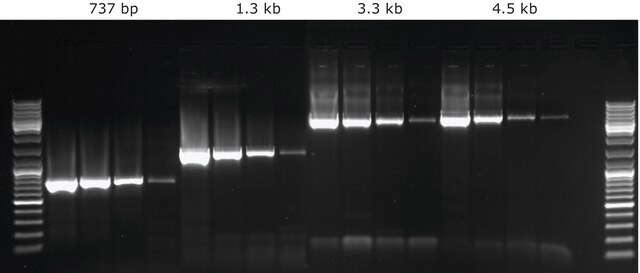D4812
REDAccuTaq® LA DNA Polymerase
High fidelity Taq with inert dye, 10X buffer included
About This Item
Recommended Products
form
liquid
usage
sufficient for 250 reactions
feature
Long & Accurate PCR
dNTPs included: no
hotstart: no
concentration
1 unit/μL
technique(s)
PCR: suitable
color
red
input
purified DNA
shipped in
wet ice
storage temp.
−20°C
General description
Application
- Mutation analysis
- Cloning genes
- DNA sequencing
- cDNA library generation
- Amplicon sequencing
Features and Benefits
- Increased fidelity, up to 6.5× that of Taq DNA polymerase
- Efficiently and accurately produce amplicons up to 22 kb on genomic templates and up to 40 kb on less complex templates such as lambda or bacterial DNA
- Visual confirmation that enzyme has been added, and proper mixing has occurred
- No additional loading dyes needed. A post-reaction aliquot can be directly used on an agarose gel for electrophoresis
Packaging
Unit Definition
Other Notes
Legal Information
related product
Signal Word
Danger
Hazard Statements
Precautionary Statements
Hazard Classifications
Resp. Sens. 1
Storage Class Code
10 - Combustible liquids
WGK
WGK 1
Flash Point(F)
Not applicable
Flash Point(C)
Not applicable
Personal Protective Equipment
Certificates of Analysis (COA)
Search for Certificates of Analysis (COA) by entering the products Lot/Batch Number. Lot and Batch Numbers can be found on a product’s label following the words ‘Lot’ or ‘Batch’.
Already Own This Product?
Find documentation for the products that you have recently purchased in the Document Library.
Customers Also Viewed
Articles
Long and accurate PCR applications address the needs for longer read lengths, greater fidelity and higher yields than that which can be achieved with Taq DNA polymerase.
Protocols
Reviews the applications and benefits for RedTaq, including standard RedTaq, Hot Start RedTaq and RedTaq for genomic DNA PCR.
Protocol for high fidelity amplification of long PCR fragments up to 22kb from complex DNA mixtures and up to 40kb from simple DNA mixtures.
Our team of scientists has experience in all areas of research including Life Science, Material Science, Chemical Synthesis, Chromatography, Analytical and many others.
Contact Technical Service